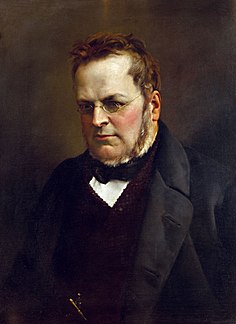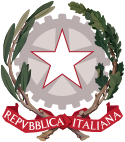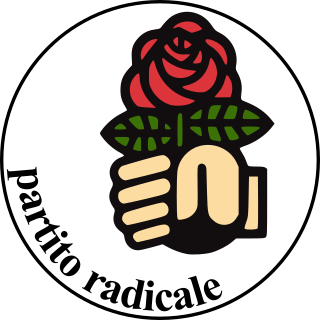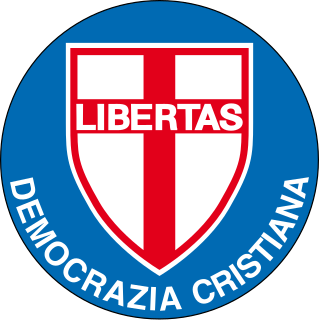
Bulgaria elects on national level a head of state - the president - and a legislature. The president is elected for a five-year term directly by the people. The National Assembly has 240 members, elected for a four-year term by proportional representation in multi-seat constituencies with a 4% threshold. Bulgaria has a multi-party system, in which no one party often has a chance of gaining power alone, and parties must work with each to form governments.
Particracy is a de facto form of government where one or more political parties dominate the political process, rather than citizens and/or individual politicians. As argued by Italian political scientist Mauro Calise in 1994, the term is often derogatory, implying that parties have too much power—in a similar vein, in premodern times it was often argued that democracy was merely rule by the demos, or a poorly educated and easily misled mob. Efforts to turn "particracy" into a more precise scholarly concept so far merely appear partly successful.

A referendum on maintaining the monarchy was held in Greece on 1 September 1946. The proposal was approved by 68.4% of voters with a turnout of 88.6%.

A referendum on the divorce law was held in Italy on 12 May 1974. Voters were asked whether they wanted to repeal a government law passed three years earlier allowing divorce for the first time in modern Italian history. Those voting "yes" wanted to outlaw divorce as had been the case before the law came into effect, and those voting "no" wanted to retain the law and their newly gained right to divorce. The referendum was defeated by margin of 59.26% to 40.74% on a voter turnout of 87.72% out of 37 million eligible voters, thus allowing the divorce laws to remain in force.

General elections were held in Italy on Sunday 25 May 1958, to select the Third Republican Parliament. The number of MPs to be elected was calculated upon the population's size for the last time.

Parliamentary elections were held in Russia on 12 December 1993. They included the last elections to the Federation Council of Russia.
A referendum on the Order law was held in Luxembourg on 6 June 1937. Voters were asked whether they approved of the new law, which would ban any political party that sought to change the constitution or national legislation by violence or threats. The law would result in the dissolution of the Communist Party, and became known as the Maulkuerfgesetz.

Parliamentary elections were held in Lithuania in two stages on 25 October and 15 November 1992. All 141 members of the Seimas, which replaced the Supreme Council, were elected; 70 based on proportional party lists and 71 in single member constituencies. Where no candidate gained more than 50% of the vote on 25 October, a run-off was held on 15 November. The first round of the elections were held simultaneously with a referendum on the adoption of a new constitution.

A double referendum was held in Italy on 11 June 1978. Voters were asked whether they approved of the repealing of laws on political party financing and public order. Both proposals were rejected.

A referendum on the electoral law was held in Italy on 18 April 1999. Voters were asked whether they approved of replacing the mixed-member proportional representation electoral system with one based solely on single-member constituencies, with the 25% of seats instead allocated to the second-placed in the constituencies with the most votes. The proposal was supported by larger parties, but opposed by smaller ones. Although the proposal was approved by 91.5% of voters, turnout was only 49.6%, resulting in the referendum being invalidated as the threshold of 50% was not passed.

General elections were held in Italy on 27 January 1861, with a second round on 3 February. The newly elected Parliament first convened in Turin on 4 March 1861, where, thirteen days later, it declared the unification of the country as the Kingdom of Italy.

General elections were held in Italy on 22 October 1865, with a second round of voting on 29 October. It was the second one in the history of Italy.

The 1874 Italian general election was held in Italy on 8 November, with a second round of voting on 15 November. They were a snap election, called by Prime Minister Marco Minghetti to strengthen his majority.

General elections were held in Italy on 29 October 1882, with a second round of voting on 5 November. The "ministerial" left-wing bloc emerged as the largest in Parliament, winning 289 of the 508 seats.

General elections were held in Liechtenstein on 11 March 1918, with a second round on 18 March. They were the first elections held in the country contested by political parties, as the Christian-Social People's Party and Progressive Citizens' Party had been founded that year. The Progressive Citizens' Party emerged as the largest in the Landtag, winning seven of the 12 elected seats.

General elections were held in Romania in June 1939. The Chamber of Deputies was elected on 1 June, whilst the Senate was elected a day later. They were the first since the introduction of the royal dictatorship of King Carol II under the 1938 constitution. Voters were presented with a single list from the National Renaissance Front, which had been the only legally permitted party in Romania since December.

A referendum on the electoral law was held in San Marino on 22 September 1996. Voters were asked four questions on changes to the electoral law and electoral system, all of which were approved by voters.

A referendum on the electoral law was held in San Marino on 3 July 2005. Voters were asked four questions on changes to the electoral law and electoral system. Although all four were approved by a majority of those voting, voter turnout was just 21.7%, meaning that the quorum of 32% of registered voters (10,143) was not achieved for any question. This resulted in all four questions failing, including two that proposed raising the quorum to 40%.

Parliamentary elections were held in Iceland on 10 September 1908, alongside a referendum on prohibition.


















